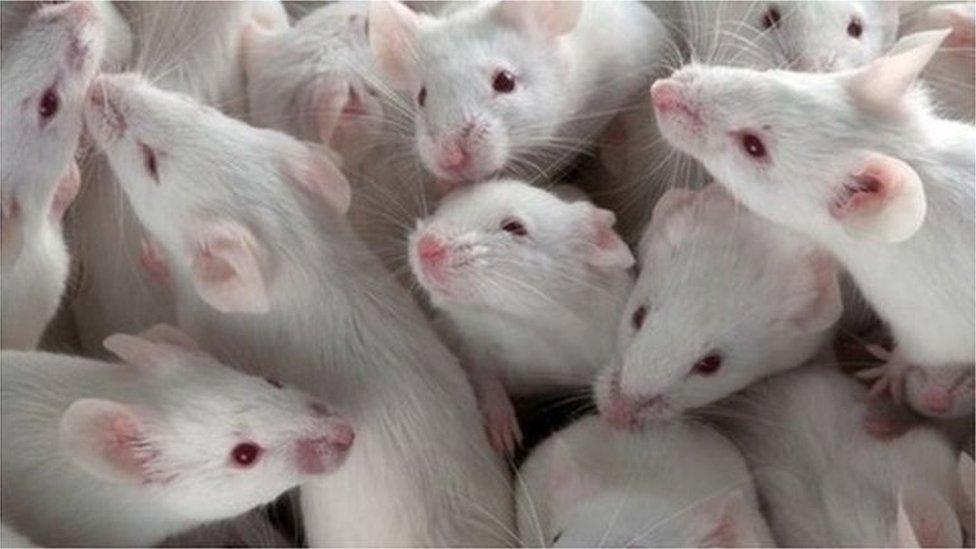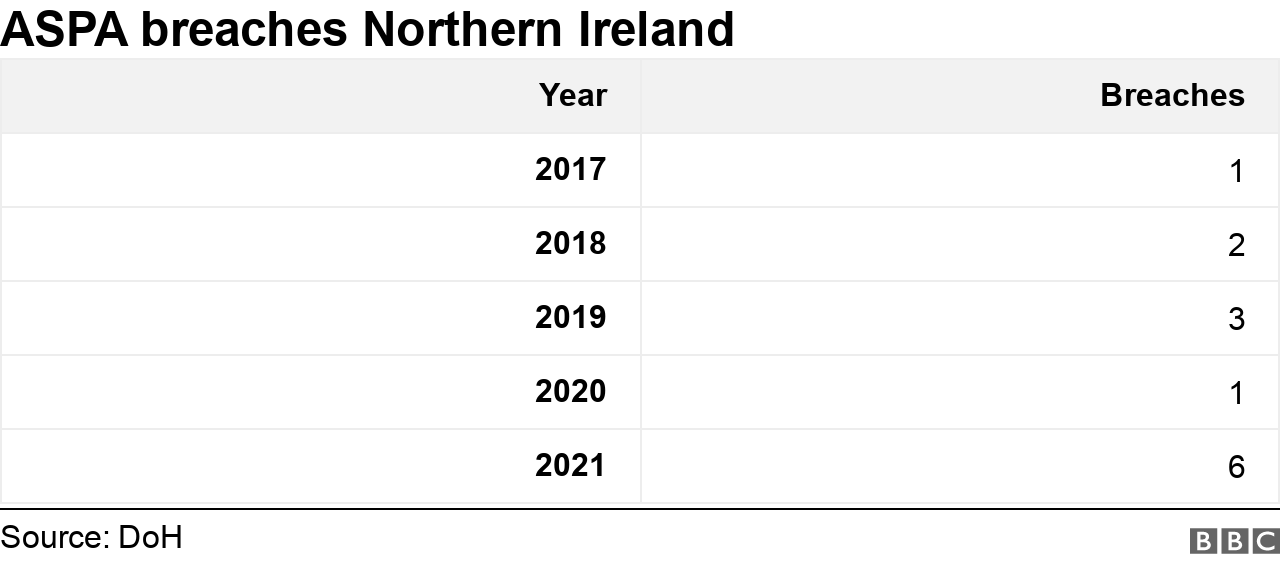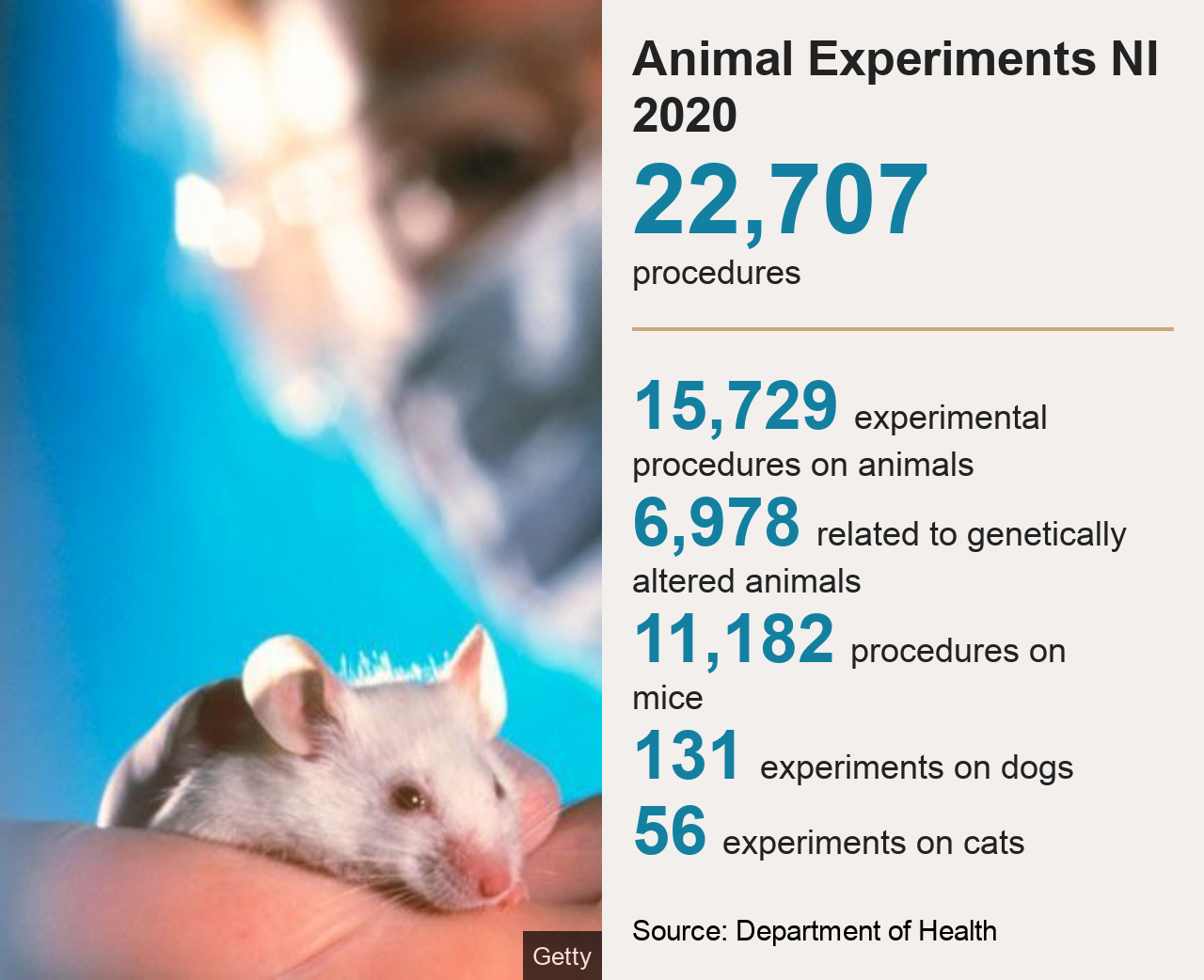Animal experiment law breaches rise in Northern Ireland
- Published

There are thousands of animal scientific experiments carried out each year
The number of times the law overseeing scientific experiments on animals has been broken in Northern Ireland has risen.
Thousands of procedures are carried out each year, many for medical research into conditions such as cancer.
There were 22,000 procedures in 2020, mostly involving mice, cattle and sheep.
A small number of procedures also included cats and dogs.
Almost 60% of procedures carried out in 2020 were by universities, more than a quarter were commercial organisations and the rest were non-profit making organisations.
Two of Northern Ireland's largest universities confirmed they were involved in scientific experiments on animals.
Queen's University said: "Queen's conducts research on animals only when it is absolutely essential for clinical, biomedical and environmental studies and where there are no alternatives.
"All such work is heavily regulated."
Meanwhile Ulster University said it "only carries out animal testing when absolutely necessary; when there are no scientifically suitable or viable alternatives".
The Animal Scientific Procedures Act (ASPA) is the legislation regulating the use of animals in scientific research in the UK.
BBC News NI can reveal there have been 13 breaches of the law regulating animal experiments in Northern Ireland since 2017.
Included in the Northern Ireland breaches were blood samples taken from animals in the wild without a licence, a failure to provide food and water to mice and birds housed in cages smaller than required by law.
Almost half of those breaches took place in 2021.

The Department of Health (DoH) is responsible for issuing licences for these experiments in Northern Ireland.
A DoH spokesperson said the department acknowledged it was "most regrettable that the breaches detected may have involved unnecessary suffering of animals".
"But the culture of self-reporting of incidents by establishments indicates that an establishment is making efforts to ensure compliance and demonstrates that role holders are aware of their responsibilities and are committed to building a good culture of care."
Of the six breaches reported in 2021, two were discovered by inspection and four were notified to the DoH by the establishments themselves.
The DoH did not provide details of what organisations the breaches related to and said it could not say who held licences because it had "the potential to lead to potentially dangerous disruption to the locations".
The equivalent figures for England, Wales and Scotland are not yet available for the years 2019, 2020 and 2021, although there were 28 breaches recorded in 2018.
There have been no prosecutions or convictions under ASPA in Northern Ireland since 2017.
DoH said only extremely serious breaches would be referred to the prosecuting authorities.
'Shocking'
The Ulster Society for the Prevention of Cruelty to Animals (USPCA) has raised concerns about the findings.
USPCA chief executive Brendan Mullan said while he accepted the use of animals in research was required to advance human healthcare, he found the number of breaches worrying.
"These breaches are shocking and it certainly creates the impression that these animals are seen by some as objects, and not as sentient beings," he said.
"Animals feel stress and pain and there is an obligation to look at alternatives such as in vitro research as well as computer-based research using AI and scientific models, but this needs investment."
The majority of animal experiments are on mice, cattle, sheep and also includes cats and dogs
DoH says it works to ensure all opportunities to replace animals with other techniques, refine their use to minimise suffering or reduce the number of animals used, are taken up where appropriate.

According to the DoH, 147 animals did not recover and died after experiments in Northern Ireland in 2020.
That year, almost 7,000 procedures related to the creation of genetically-altered animals whose genes had been mutated or been modified.